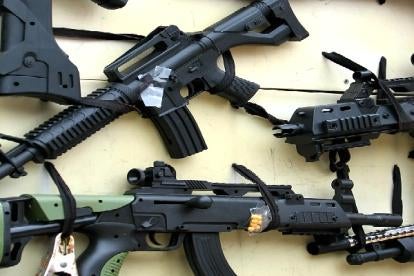The United States continues to be plagued by mass shootings, which appear to be increasing in both frequency and lethality. Certain businesses have reacted by adjusting their business models, such as the recent decision by mega-retailer WalMart to stop selling some — but not all — types of ammunition. Likewise, some financial institutions have imposed restrictions on retail business clients which sell firearms or have stopped lending to certain gun manufacturers.
However, at least some commentators have made a much more far-reaching proposal. They argue that banks and credit card companies should draw upon their experience monitoring transactions under their Bank Secrecy Act (“BSA”)/Anti-Money Laundering (“AML”) programs and attempt to review individual customers’ purchases of firearms, ammunition and related items such as body armor — in order to file Suspicious Activity Reports (“SARs”) and/or terminate their accounts.
But in order to monitor these types of transactions, financial institutions first would have to convince retailers to provide extra data on customers’ purchases, which otherwise would not typically inform the institution of the precise nature of any given purchase. Moreover, because this proposal focuses on individual customers, the financial institutions would have to draw conclusions based on imperfect information regarding the “true intentions” of the purchaser. This task would be much more nuanced and difficult than a blanket decision to not do business with a particular industry.
We recognize the sensitive nature of this topic and seek merely to acknowledge this emerging national debate — one unlikely to fade from the national discourse in light of the continued mass shootings that will (unfortunately) keep happening – and to caution the possibility that future civil lawsuits against financial institutions, worthy or not, might incorporate allegations regarding BSA/AML programs and responsibilities. Such lawsuits could rest on unrealistic assumptions regarding the actual capacity of financial institutions to detect and report the apparent planning activities of a future mass shooter.
This issue invokes echoes of Operation Choke Point, the very controversial and now-defunct program initiated by the Department of Justice and implemented in part by the Federal Deposit Insurance Corporation, in which financial institutions were subjected to higher regulatory scrutiny for providing services to certain allegedly “high risk” but legal businesses, such as gun and ammunition manufacturers. Perhaps not surprisingly, certain groups have reacted with vehement opposition to the notion that financial institutions should apply higher scrutiny to transactions relating to firearms. For example, Senator John Kennedy of Louisiana has introduced a bill, entitled the “No Red and Blue Banks Act,” to “prohibit the award of federal contracts to banks that discriminate against lawful businesses through social policy considerations.” The stated purpose of the bill is to “ensure that [banks] will not be awarded lucrative federal government contracts after trampling on business owners’ Second Amendment rights.” Although such a bill may simply be a vehicle for a press release, the sentiment is real.
Aside from Second Amendment issues, others have argued that imposing this moral and regulatory burden on banks and credit card companies inappropriately shifts the responsibility for addressing the scourge of mass shootings from where it belongs – with Congress, state legislatures and law enforcement.




 />i
/>i

